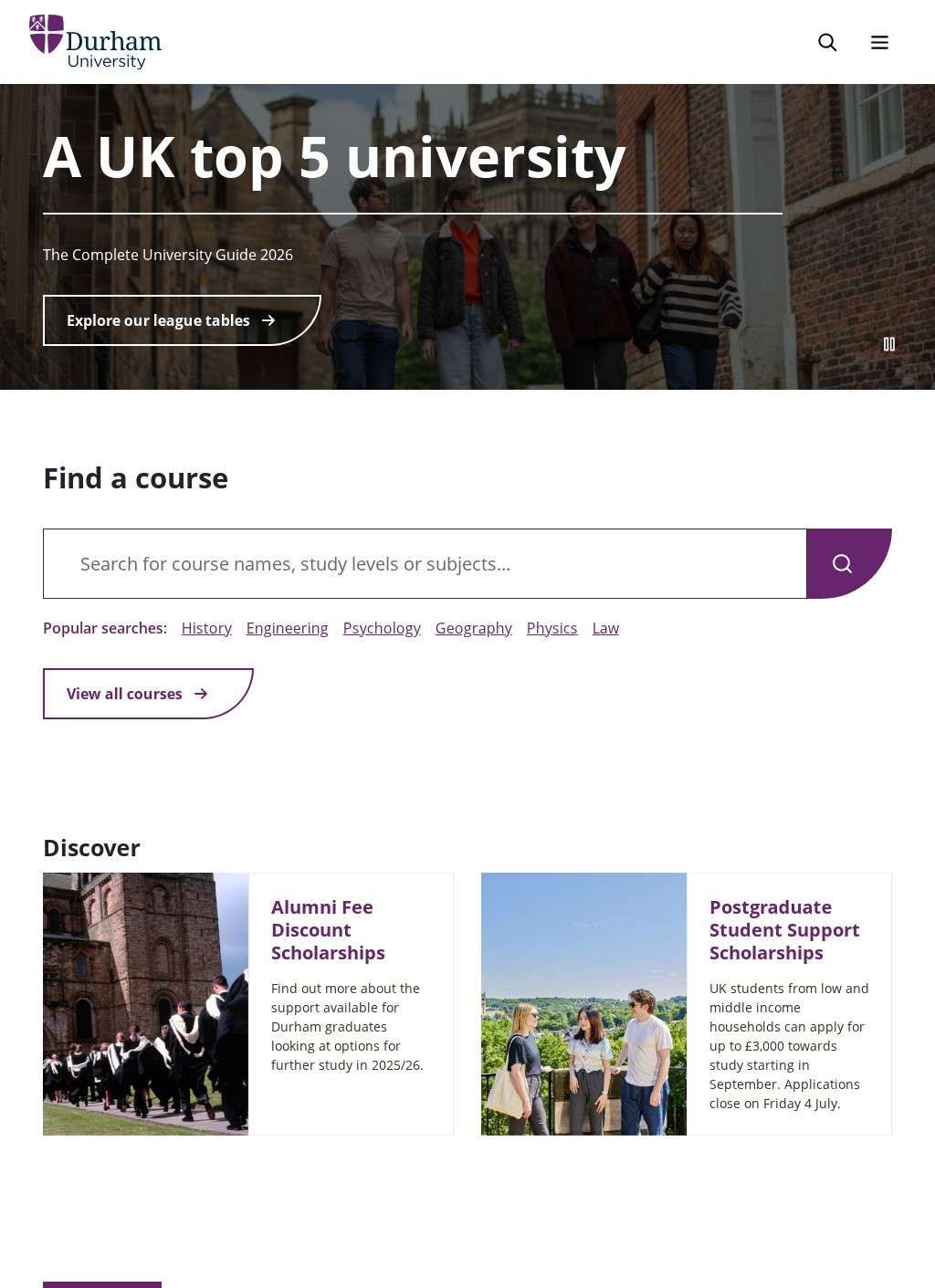Durham University holds the distinction of being England's third-oldest university, established by Act of Parliament in 1832 and incorporated by royal charter in 1837. As a collegiate public research university, it operates through a unique system dividing responsibilities between 17 colleges that handle student welfare and accommodation, and academic departments that conduct research and deliver teaching. This collegiate structure, modelled on Oxford and Cambridge, creates smaller communities within the larger institution, fostering close relationships between students and staff whilst maintaining the resources and opportunities of a major research university. The university's main functions span undergraduate and postgraduate education, world-leading research, and significant contributions to regional economic development.
Research excellence defines Durham's academic reputation, with membership in the prestigious Russell Group of research-intensive universities and participation in international networks including the Matariki Network of Universities and the Coimbra Group. The university hosts numerous research centres addressing global challenges, from the Durham Energy Institute developing sustainable energy solutions to the Institute of Medical Humanities exploring health beyond clinical perspectives. Recent achievements include hosting the European Research Council's Scientific Council meeting, groundbreaking research challenging theories about the Milky Way's collision with Andromeda, and discoveries about climate change's impact on antibiotic resistance in soil bacteria. Durham researchers regularly secure major funding awards and lead national research assessments, with two academics recently appointed to head REF 2029 sub-panels.
The student experience at Durham combines academic rigour with extensive extracurricular opportunities. Beyond traditional lectures and seminars, students engage in everything from Durham Student Theatre productions in the Assembly Rooms to performances by Northern Lights, the university's a cappella group that won UK finals of the International Championship of Collegiate A Cappella in both 2023 and 2024. The university maintains the UK's oldest Gamelan slendro set, housed in the Grade II listed Durham University Observatory, and offers numerous choral and organ scholarships through various colleges. Sports play a significant role in student life, with college rivalries culminating in annual varsity competitions and boat races on the River Wear.
Durham's educational offerings span numerous disciplines through departments renowned for specific strengths. Durham University Business School recently opened new facilities at Waterside, with former Unilever CEO Paul Polman inaugurating the building that houses programmes attracting students globally. The Law School runs international arbitration programmes drawing practitioners worldwide, whilst the Biosciences Department consistently ranks among the UK's best. Innovative programmes like the Durham-led Global Network for Neglected Tropical Diseases demonstrate the university's commitment to addressing real-world challenges through interdisciplinary collaboration. The university particularly excels in attracting international students and maintaining global partnerships that enhance both research and teaching.
The university estate itself represents a significant heritage asset, encompassing 83 listed buildings ranging from the 11th-century Durham Castle to 1960s brutalist architecture. As co-manager of the Durham World Heritage Site with Durham Cathedral, the university bears responsibility for preserving these historic structures whilst adapting them for modern educational use. Recent investments include a £2 million project establishing the UK's first residential research library in collaboration with Durham Cathedral and Ushaw College. The university's museums – including the Oriental Museum with collections exceeding 100,000 pieces – hold accreditation from Arts Council England and serve both academic purposes and public engagement.
Economic impact studies consistently demonstrate Durham University's vital contribution to regional prosperity. As a major employer in North East England, the university directly employs thousands whilst supporting many more jobs indirectly. The recent N8 report showed that Northern England's eight research-intensive universities, including Durham, generated £18.8 billion in economic impact for the UK. Beyond employment, the university drives innovation through spin-out companies, knowledge transfer partnerships, and graduate retention programmes that help talented individuals build careers in the region. The presence of over 20,000 students also significantly boosts Durham's retail, hospitality, and property sectors.
Looking ahead, Durham University continues investing in facilities and programmes that enhance its global standing whilst serving local communities. The institution offers various scholarship schemes, including Alumni Fee Discount Scholarships and Postgraduate Student Support Scholarships aimed at widening participation. Digital transformation initiatives improve accessibility to resources and teaching, whilst sustainability commitments address environmental challenges. Notable developments include the recent appointment of Dr Fiona Hill, former US presidential advisor, as Chancellor, bringing additional international expertise and connections. Through balancing tradition with innovation, maintaining academic excellence whilst ensuring accessibility, and combining global ambitions with regional responsibilities, Durham University exemplifies how historic institutions can remain relevant and impactful in contemporary higher education.
